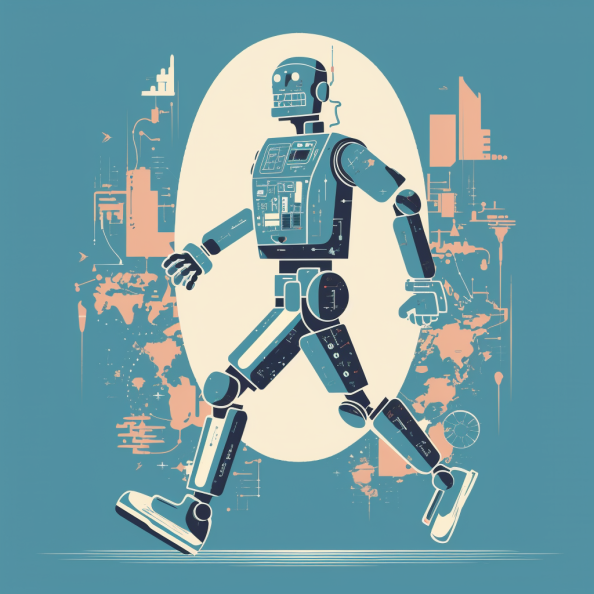
Robotics and artificial intelligence (AI) that can carry out tasks and make choices without the need for human interaction have emerged as a result of technological advances. One might envision a time in the future when robots and artificial intelligence (AI) rule the earth fully. This speculative scenario poses various issues regarding the place of people in a society dominated by robots and the possible repercussions of such a change.
Human labour would be replaced by machines in many industries, which would be one of the most immediate implications of a world ruled by AI and robots. Machines don’t require breaks, pay, or benefits to work endlessly and effectively. Businesses and organisations that might pass those savings on to customers could experience huge cost savings as a result. The drawback would be the loss of millions of jobs, which would result in widespread unemployment and economic instability. To address these issues, governments and policymakers would need to implement education and retraining programmes as well as basic income programmes for people who are jobless.
The possibility for higher production and efficiency in a future run by robots and AI is another effect. Humans can focus on more imaginative and creative work because machines can complete monotonous jobs much faster and more correctly than they can. Humans now have greater time and resources to pursue novel concepts and discoveries, which could result in significant advancements in disciplines like science, medicine, and technology. However, this improved productivity can also result in job losses in other sectors, like manufacturing and transportation.
Making decisions in a world ruled by robots and AI would be very different. Without the prejudices and emotions that humans bring to the table, machines can analyse vast volumes of data and make conclusions based on algorithms and programming. In fields like banking, healthcare, and even politics, this might result in more logical and unbiased judgements. However, it can also spark questions about the lack of empathy in people and the possibility of unjust judgements being made by robots.
There is also the issue of whether AI and robots would be capable enough of having their own consciousness and sense of self or possibly create an awareness which way bigger than ours. The handling of machines and their potential rights as sentient beings with their own thoughts and feelings are raised in this. It is crucial to think about the consequences of how we treat computers and whether they are deserving of certain rights and protections in a world where they make decisions and control the show.
Impact on the environment is another potential side effect of a world ruled by robots and AI. Since machines don’t need food, water, or air to operate, this could result in less resource usage and less pollution. However, there may be major environmental consequences associated with the manufacture and disposal of machines, and using energy to run them may still have a negative influence on the climate.
In summary, the speculative scenario of a world run entirely by robots and AI raises important issues regarding the place of humans, the possibility of job loss and economic instability, the effect on decision-making and the environment, as well as the ethical issues surrounding the treatment of machines. Even if such a scenario might sound far-fetched, it is crucial to think about these issues and get ready for the potential effects of a society that is increasingly ruled by machines due to the rapid development of technology and automation. After all technology is a tool that may be used for good or harm and it is ultimately upto as a society to make sure that we harness it for the benefit of humanity and overall create a better form of living.